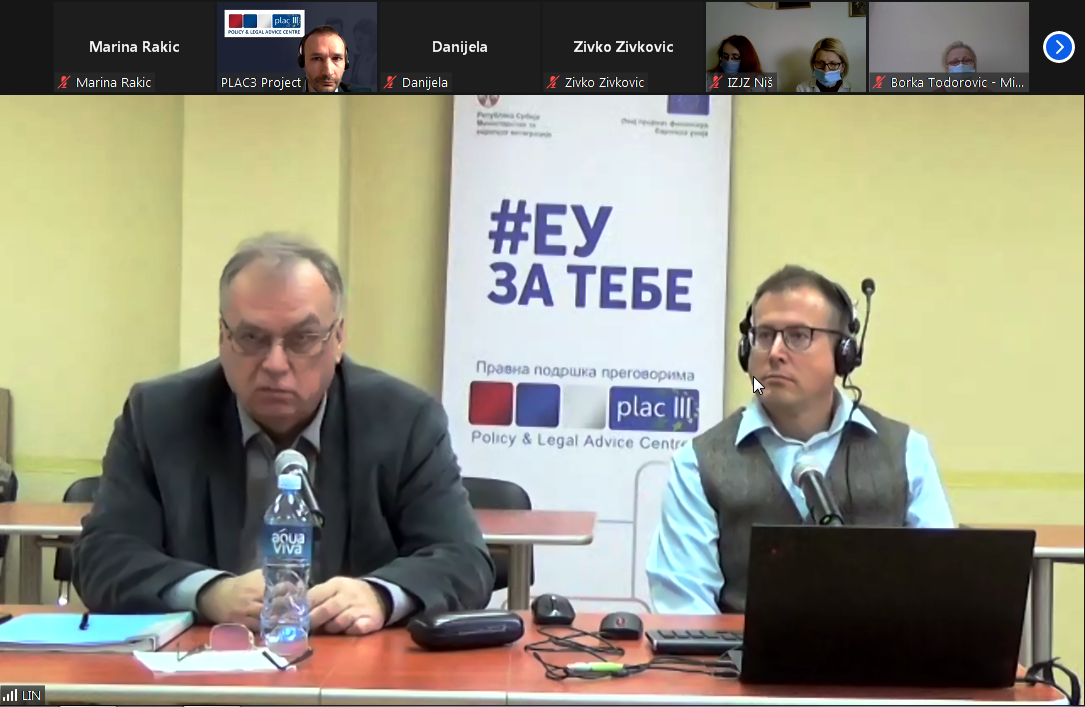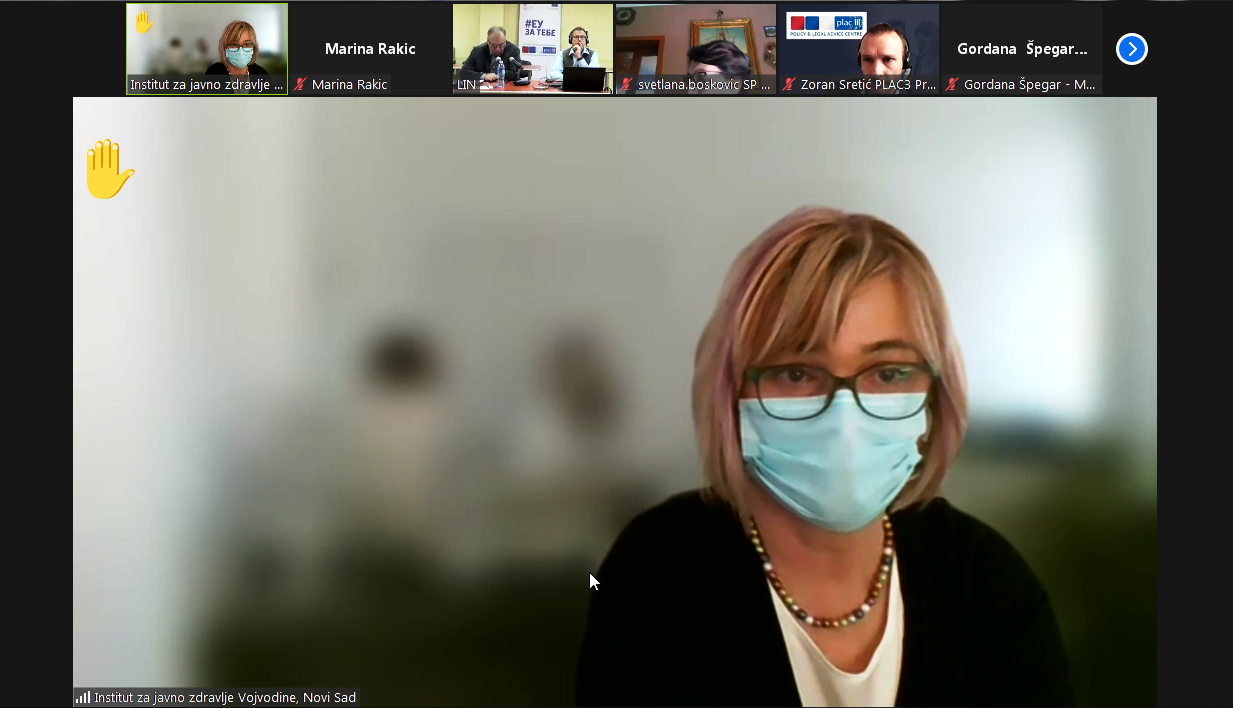In the scope of preparations for negotiations in Chapter 27 on environmental protection and climate change, Republic of Serbia has an obligation to harmonise its legislation regarding bathing water as part of its water quality policy with EU standards and regulations. PLAC III project has provided support to the competent Ministry of Health in harmonising the legislation on bathing water.
Project experts Robert Seelig and Zvonko Platiša, Adviser in the Inspection Sector of the Ministry of Health, presented a draft Rulebook on bathing water quality transposing the Union acquis, i.e. Directive 2006/7/EC on bathing water quality management at a workshop held on 3 March 2022. According to Seelig, this directive was passed in 2007 and refers to the management of bathing water, but tackles also the protection of the environment; its first version from 1976 underwent significant changes due to advances in science and rising financial costs, which led to a reduction in the number of parameters for monitoring water quality from 19 to only two.
Member States are obliged to identify the bathing waters and to monitor and assess bathing water for at least two parameters, as well as to inform the public about the water quality. According to the Directive, it is about the use of water in terms of recreation, including bathing on the beaches. Inspections rights and obligations are also defined by the Directive.
According to Platiša, the Ministry of Health worked with the PLAC III project on the transposition of the Directive with the idea of transposing it into domestic legislation through the Law on Waters and the Rulebook.
The draft Rulebook envisages the introduction of a bathing water monitoring calendar, bathing water quality assessment and classification. The annexes list the microbiological parameters that must be monitored, the rules for sampling for analysis and labelling of bathing water quality, as well as of possible bathing bans.
The Rulebook does not apply to swimming pools, spa pools, swimming pools used for therapeutic purposes as well as artificially created spaces with waters that are not in contact with surface and groundwater. It envisages the participation of the public sector – local self-government units, which are also obliged to constantly inform the public about the quality of bathing water. Public health institutes have the same obligation.
Platiša said that the Republic of Serbia has so far had not any law that would regulate the field of bathing water and that a big step has been made that will help laboratories and all other participants, enable good quality bathing water and preserve the environment. He added that the Rulebook will not be passed until the new Law on Waters is adopted.
The workshop was attended by more than 60 participants from the Ministry of Health, Institutes of Public Health from several cities in Serbia, and laboratories.





